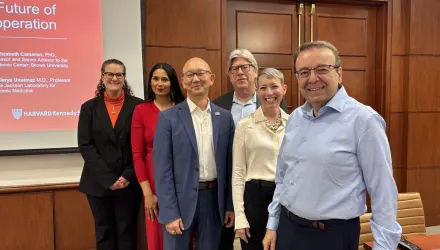In a widely circulated speech, UK environmental activist Mark Lynas has apologized for his past history of demonizing transgenic crops and masterminding the anti-biotechnology campaign. Explaining at the Oxford Farming Conference in January 2013 why he changed his mind, Lynas said: “I discovered science, and in the process I hope to become a better environmentalist.”
Such apologetic statements help to signal the changing times and the shift in the balance of evidence. However, much persecution of biotechnology has been done using laws that severely and unfairly restrict into development and deployment. Those laws need to be reviewed so they reflect the balance of evidence today.
The apology by Lynas reflects the growing consensus that evidence is stacking up against earlier extreme positions opposing the technology. This is not to say that the technology is risk free; it is a case where the risks were initially overstated and the benefits downplayed.
Early perceptions about the environmental and health impacts of transgenic crops were shaped by precautionary approaches that assumed the consequences of the technology could be catastrophic. In Kenya, for example, scientists or traders who violate biosafety rules face up to 10 years in prison.
Nearly two decades of propaganda and advocacy based on questionable scientific evidence forced many countries to forego the benefits of a new technology even before its merits had been assessed. In effect, these restrictions have introduced a new class of risks associated with not being able adopt a new technology even where it would confer benefits to farmers, consumers, and industrialists.
The United Nations Convention on Biological Diversity championed the adoption of restrictive regulations under the Cartagena Protocol on Biosafety. The anti-science treaty empowers governments to ban biotechnology products without any evidence of harm. All they need are expressions of concern. In other words, they can impose a ban simply because they have given themselves the power to do so.
The Cartagena Protocol has extended its reach to include a supplementary treaty on liability. The assumption under this regime is that adopting biotechnology carries irreversible risks and stopping the technology does not carry any risks.
In other words, those who promote the adoption of new technologies in light of future threats such as famine face legal challenges. Yet those who persecute new technologies and whose actions lead to long-term damage due to foregone benefits are hardly held to account.
Many of the groups opposed to transgenic crops argue that they are seeking to protect biodiversity. Yet after decades of advocacy they can hardly produce evidence of the extent to which their actions have protected biodiversity. They cannot demonstrate positive impacts of their activities, yet the negative consequences for the agricultural sector are now being recognized, as illustrated by Lynas’s apology. This is irrespective of the fact that no serious studies have ever listed genetic modification as a major threat to biological diversity.
According to the Millennium Ecosystem Assessment, the main threats to biodiversity are habitat transformation, overexploitation of natural resources, invasive species, pollution, and climate change. But through strenuous misinformation, critics of biotechnology have managed to bamboozle the public into ignoring the real threats to biodiversity.
Critics of biotechnology argue that the industry is controlled by a few large corporations, which they incessantly demonize. But their actions have resulted in developing countries unnecessarily raising the regulatory bar so high that only large corporations have the resources needed to get new crops approved by the restrictive regulatory bodies. In practice, anti-biotechnology activists inadvertently promote monopoly of the biotechnology sector by large corporations.
A key lesson from the history of opposition to biotechnology is that risks cut both ways. Biosafety laws in most countries punish those seeking to solve agricultural problems. Yet those who stop efforts to solve the problems are generally immune to prosecution or accountability.
Just political systems should not have punitive laws that persecute new technologies without acting on the basis of evidence of harm. Countries around the world should follow the path of Mark Lynas in discovering science and start reviewing the laws they put in place to persecute biotechnology. This will make them better defenders of the environment.
[NB: In an earlier version of this post we inadvertently misrepresented former UK Environment Minister Michael Meacher's position as put forward in this BBC interview. We wish sincerely to apologize. - Calestous Juma]
Juma, Calestous. “Persecuting Biotechnology.” January 11, 2013




